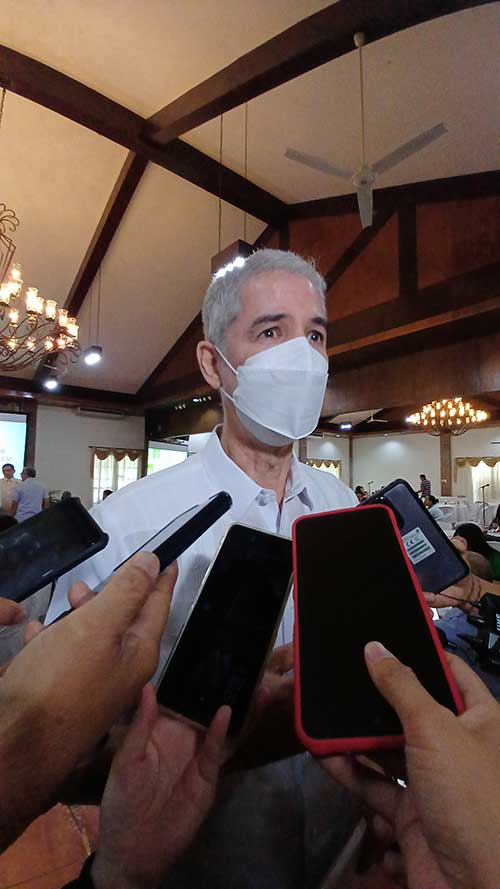
By Dolly Yasa
BACOLOD CITY – Negros Occidental Governor Eugenio Jose Lacson called for a united effort to combat global warming, warning it could soon reach “a point of no return for us all.”
The call was made during the Provincial Government Stakeholders’ Consultative Power Summit at Santuario de La Salle on Friday. The event was attended by stakeholders from the power industry, academia, business, and civil society, among others.
Lacson pointed to the heat index of about 40 degrees Celsius over several weeks, noting, “We had El Niño seasons before, but they have not been as hot as now, it can be attributed to a bigger challenge facing us: climate change.”
He referenced warnings from the Intergovernmental Panel on Climate Change (IPCC) about the critical nature of the coming years. “We all have to work together to limit global warming to 1.5 degrees Celsius and below, or it will be a point of no return for us all,” Lacson emphasized.
The summit is a response to persistent brownouts, blackouts, and high electricity prices, which have raised widespread concern, he explained.
In February, the provincial government launched the “SecuRE Negros” campaign, emphasizing Renewable Energy (RE) with the capital letters “RE” in “secure,” to underline the focus of the initiative.
“In short, we want to ensure energy security for our province in ways that are not harmful to our people and our environment,” he added.
These initiatives are preliminary strategies to raise energy consciousness among the populace and to unite different sectors, according to Lacson.
Considering the broader context of climate change, Lacson noted the province’s commitment to a Just Energy Transition (JET) to Renewable Energy (RE) to reduce carbon emissions and mitigate climate change’s adverse effects.
“This year, the provincial government will walk its talk by undertaking the solarization of seven main facilities, involving the installation of a total of 1,270 KW total installed capacity of solar PV systems that will save us an estimated 132,080 KWh to 158,000 KWh per month,” Lacson said.
The provincial government will finance the solar panels on a monthly basis, akin to paying for electricity, but at a lower cost. “At 12 per KWh, this translates to a cost savings of P1.5 million to P1.8 million every month,” he added.
He also encouraged other local government units to adopt similar initiatives.
Reflecting on the current high heat indexes and the potential for their continuation, Lacson said, “If we don’t change our collective course, we basically have two choices left: we can continue to bash, blame, and complain but do nothing about it and continue to suffer passively, or we can work together to craft a different future for us all, for our children, and for our future generations.”



















